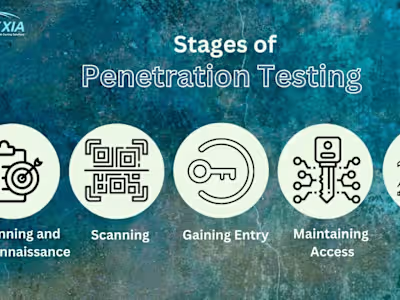What Is Personal Finance? Practical Guide Every Beginner Must K…

Learn all about what is personal finance with our practical guide for beginners. Start your journey to financial success and security today!
Welcome to the world of personal finance, where dollars and cents take center stage! If you’ve ever felt overwhelmed by money matters or wondered what taking control of your finances means, you’re in the right place.
Whether you’re a recent graduate, a young professional, or simply looking to improve your financial literacy, understanding personal finance is essential.
In this practical guide, we’ll embark on a journey to demystify personal finance for beginners and equip you with the essential knowledge you need to navigate the sometimes murky waters of financial management.
From budgeting to investing and everything in between, we’ll break down complex concepts into simple, actionable steps that will empower you to make informed decisions and take charge of your financial future.
What Is Personal Finance?
Personal finance is the management of your financial resources, including income, expenses, savings, investments, debt, and financial goals. It involves making informed decisions about allocating and utilizing your financial resources to achieve short-term and long-term financial objectives.
In a nutshell, personal finance definition is the art and science of managing your money like a boss.
Why Is Personal Finance Important?
Personal finance is your ticket to financial freedom.
Unfortunately, life can throw curveballs at you, like unexpected expenses, debt, or even the dreaded “adulting” responsibilities.
According to a recent survey, 62% of Americans live paycheck to paycheck, with little to no savings to fall back on in case of emergencies. Yikes! And get this – the average credit card debt per household in the U.S. is around $9,000. Double yikes!
But fear not! You can avoid these pitfalls and become a personal finance Jedi with some practical knowledge.
Check out more importance of personal finance below.
Financial Freedom:
Personal finance is crucial because it empowers you to take control of your financial future and achieve financial freedom. Who doesn’t want to retire comfortably, travel the world, or pursue passions without worrying about money?
Peace of Mind:
With personal finance knowledge, you’ll be assured of knowing your bills are paid, you have a cushion for emergencies, and your future is secure. No more sleepless nights worrying about how you’ll make ends meet!
Building Wealth:
Personal finance is not just about managing your money – it’s also about building wealth over time. With smart investments and a solid financial plan, you can grow your net worth and achieve your financial goals faster.
Avoiding Debt:
Personal finance helps you avoid the debt pitfalls that can quickly spiral out of control. By living within your means, budgeting wisely, and managing your credit wisely, you can stay on top of your finances and avoid getting into debt in the first place.
Achieving Your Dreams:
Whether buying a home, starting a business, or pursuing your dream career, personal finance can help you achieve your pursuits. You can change your dreams into reality by making wise financial decisions and building a solid financial foundation.
Independence:
Finally, personal finance is necessary because it gives you independence and control over your life. You won’t have to rely on anyone else for financial support or feel trapped in a job you hate because you can’t afford to quit. Instead, you’ll be free to live on your terms and pursue your passions without financial worries holding you back.
Common Misconceptions about Personal Finance
“Personal finance is only for rich people.”
Oh, honey, no! Personal finance is for everyone, regardless of income or social status. It’s about making the most of what you have and setting yourself up for financial success, no matter where you start from.
“I’m too young to worry about personal finance.”
The earlier you start thinking about your financial future, the better. Whether you’re a teenager with a part-time job or a recent college grad, every penny you save and invest now will pay off in the long run.
“I don’t make enough money to save or invest.”
False! Even if you’re living on a shoestring budget, you can make your money work for you in various ways. From cutting back on expenses to finding creative side hustles, there’s always room to save and invest.
“Personal finance is too complicated for me to understand.”
Nonsense! Although you’d find some complex financial concepts, the basics of personal finance are pretty straightforward. With patience and guidance, anyone can become a personal finance pro.
“I’ll worry about retirement when I’m older.”
Oh, honey, you’ll regret that later! The earlier you save for retirement, the better off you’ll be in the long run. Start thinking about your golden years before you knock on retirement’s door.
Finally, don’t let these common misconceptions prevent you from controlling your finances. With some know-how and a healthy motivational dose, you can succeed financially.
What Are the Basics of Personal Finance?
Are you ready to take control of your finances like a pro? Let’s dive into the basics of personal finance for every beginner. These fundamental concepts will help you build a solid financial foundation and achieve your goals.
Understanding the Components of Personal Finance
1. Income
Income is the money you receive from various sources, such as your job, investments, or side hustles.
Understanding your income sources is crucial in budgeting effectively and maximizing your earning potential.
Track and analyze your income to make informed decisions about allocating it toward expenses, savings, and investments.
Remember, your income is not just a number on your paycheck; it’s the foundation of your financial success.
2. Expenses
Expense is the money you spend on various items, such as rent, utilities, groceries, and entertainment.
You should differentiate between fixed and variable expenses to budget effectively and control your spending.
Fixed expenses, like rent or car payments, remain the same each month, while variable costs, like groceries or dining out, can fluctuate.
By tracking your expenses and prioritizing your spending, you can make intentional choices about where your money goes.
3. Budgeting
Budgeting is the foundation of personal finance. Budgeting involves creating a plan to allocate income towards different expenses and savings goals, allowing individuals to understand their spending habits and financial priorities clearly.
A well-designed budget can help track your expenses, control your spending, and ensure you save and invest enough to meet your financial goals.
4. Savings
Saving money can be challenging but essential for achieving financial success. It involves setting aside a portion of income for future use, whether for emergencies, short-term goals like a dream vacation, or long-term goals such as retirement.
Saving not only helps you build a financial safety net but also provides you with the resources needed to achieve your financial aspirations and dreams.
The key to successful saving is to start small and be consistent. Every dollar counts; small savings can add to significant wealth over time.
Fortunately, you can use several strategies to make it easier, such as setting up automatic savings transfers, creating a savings goal, and tracking your progress.
5. Debt Management
Debt can be a burden and a significant barrier to achieving financial goals. But it shouldn’t be a lifelong struggle. With a solid debt management plan, you can take control of your finances and start chipping away at your debt.
Start by prioritizing high-interest debt, consolidating debt, or negotiating with creditors. Then, focus on paying down other debts, such as credit cards, mortgages, or student loans.
Properly managing debt involves:
Understanding the terms and conditions of loans.
Creating a repayment plan.
Minimizing unnecessary debt to avoid financial strain and improve credit scores.
You can become debt-free and start building wealth with some discipline and dedication.
6. Investing
Investing is another essential aspect of personal finance. It involves putting money into various assets such as stocks, bonds, real estate, and other investment vehicles to grow wealth over time.
Investments can generate returns in the form of dividends, interest, or capital gains, and they play a critical role in building long-term financial security and achieving financial goals.
While investing can be intimidating, it doesn’t have to be. The key is to start early with the basics, understand your risk tolerance, and invest in assets that align with your financial goals.
Remember, investing is a marathon, not a sprint. Stay the course and resist making impulsive decisions based on short-term market fluctuations.
7. Financial Planning
Financial planning is an essential component of personal finance, as it involves setting financial goals, creating a plan to achieve them, and regularly monitoring and adjusting the plan as needed.
Financial planning helps individuals manage their finances effectively, make informed financial decisions, and achieve short-term and long-term financial goals.
Finally, understanding these essential financial concepts can differentiate between financial success and stress.
What Are the Key Components of Financial Planning?
1. Goal Setting
Goal setting is a crucial component of financial planning. It involves identifying and creating a plan to achieve short-term and long-term financial goals.
Short-term goals comprise building an emergency fund, paying off credit card debt, or saving for a down payment on a home.
Long-term goals include saving for retirement, paying off a mortgage, or saving for a child’s education.
Setting SMART goals is an effective way to ensure that financial goals are achievable and realistic. SMART stands for Specific, Measurable, Achievable, Realistic, and Time-bound.
Specific goals are clear and well-defined.
Measurable goals are quantifiable and trackable.
Achievable goals are realistic and attainable.
Realistic goals are within an individual’s means and resources.
Time-bound goals have a set deadline or timeline for achievement.
Be specific, break your goals into smaller milestones, and track your progress.
2. Retirement Planning
Retirement planning is another crucial aspect of financial planning. It involves understanding different retirement savings options, including employer-sponsored retirement plans such as 401(k)s, individual retirement accounts (IRAs), and annuities.
Additionally, it concerns calculating retirement needs, estimating how much money is needed to live comfortably in retirement, and creating a plan to achieve retirement goals.
Effective retirement planning ensures that individuals have sufficient resources to maintain their living standards during their retirement years.
3. Insurance
Insurance plays a vital role in protecting against unexpected events that could negatively impact an individual’s financial well-being. Different insurance types include health insurance, life insurance, disability insurance, and long-term care insurance.
Understanding the importance of insurance in financial planning involves assessing an individual’s risks and selecting appropriate coverage to mitigate those risks.
4. Estate Planning
Estate planning is creating a plan to protect and distribute assets to future generations. It involves creating a will specifying asset distribution, appointing guardians for minor children, and designating beneficiaries for retirement accounts and life insurance policies.
Estate planning helps ensure that an individual’s wishes are carried out and that their assets are distributed according to their wishes.
Protecting future generations’ assets involves considering taxes, legal fees, and probate costs.
Join our community today!
Don’t miss out on our exclusive content! Sign up for free.
Advanced Personal Finance Strategies
While basic personal finance strategies are essential for financial success, advanced techniques can take an individual’s financial management to the next level. This section provides insights into advanced methods for managing personal finances.
1. Tax Planning
Understanding tax laws and optimizing tax strategies is critical to advanced personal finance. It involves understanding tax laws, optimizing tax strategies, and reducing tax liability.
By taking advantage of tax deductions, credits, and other strategies, individuals can significantly reduce their tax burden and keep more of their hard-earned money.
Some tax planning strategies include investing in tax-deferred accounts, such as 401(k)s and IRAs, using tax-efficient investment strategies, and maximizing deductions.
2. Investment Diversification
Investment diversification is another essential strategy for advanced personal finance. It involves spreading investments across different asset classes, such as stocks, bonds, real estate, and commodities, to minimize risk and maximize returns.
By diversifying their portfolios, investors can reduce their exposure to market fluctuations and increase their chances of achieving long-term investment goals. Developing a diversified investment strategy that aligns with an individual’s risk tolerance, investment goals, and time horizon is essential.
3. Real Estate Investing
Real estate investing is an advanced strategy that involves purchasing and managing properties to generate income or build wealth. It is an attractive option for individuals seeking to diversify their investment portfolio beyond traditional stocks and bonds.
Real estate investing offers several benefits, including potential appreciation, passive income, and tax advantages.
However, real estate investing requires significant capital, knowledge, and expertise. Understanding different real estate investing strategies, such as rental properties, house flipping, or real estate investment trusts (REITs), is crucial for making informed investment decisions.
4. Financial Education
Continuous financial education is a crucial component of advanced personal finance.
Staying updated with financial trends, understanding complex financial products and strategies, and seeking professional advice can help individuals make informed financial decisions.
Resources for financial education may include books, blogs, podcasts, online courses, or professional organizations.
Financial professionals, such as financial advisors, accountants, or estate planning attorneys, can provide valuable insights and guidance for advanced financial strategies.
Tips for Building Wealth
Building wealth is a long-term process that requires discipline, patience, dedication, and a solid financial plan.
This section will provide practical tips for beginners to build wealth over time and achieve financial success.
1. Build a Strong Financial Foundation
The first step in building wealth is establishing a solid financial foundation, including managing debt effectively, budgeting wisely, and creating an emergency fund.
To manage debt, pay off high-interest debt first, consolidate debt when possible, and avoid taking on new debt unless necessary.
Budgeting effectively involves tracking expenses, prioritizing expenses, and finding ways to save money.
Building an emergency fund is crucial to prepare for unexpected expenses or emergencies and avoid relying on high-interest debt.
2. Investing in Assets
Investing in assets is a crucial strategy for building wealth over time. Understanding different types of investments, including stocks, bonds, and real estate, and leveraging them for wealth creation can be a game-changer.
Stocks provide long-term growth opportunities, while bonds offer a more stable income stream.
Real estate can provide passive income through rental properties or potential capital gains through property appreciation.
Carefully research and evaluate investment opportunities, diversify investments, and consult with a financial advisor when necessary.
3. Creating Multiple Streams of Income
Diversifying income sources, increasing earning potential, and building passive income streams are other effective strategies for building wealth.
Creating multiple income streams can provide more financial stability and flexibility, potentially increasing earning potential.
Some ways to create additional income streams include starting a side hustle, investing in dividend-paying stocks or building passive income streams through real estate investing or online businesses.
4. Practicing Discipline and Consistency
Cultivating healthy financial habits, staying committed to financial goals, and managing risks effectively is essential for building wealth over time.
Practicing discipline and consistency involves making financial decisions based on long-term goals rather than short-term impulses.
Additionally, it involves avoiding emotional investing decisions and staying committed to financial plans even during challenging times.
Some ways to practice discipline and consistency include automating savings and investment contributions, tracking progress toward financial goals, and staying informed about changes in the financial markets.
Furthermore, regularly review and adjust financial plans, seek professional advice, and stay disciplined in managing finances to build wealth over time.
Following these tips lays the foundation for long-term financial success and achieving your wealth-building goals over time.
What Is Personal Finance? Wrap-Up
Personal finance is a broad and crucial aspect of every individual’s financial well-being. This guide thoroughly explained personal finance definition and covered vital topics that every beginner should know, including managing income, expenses, savings, investments, debt, and financial goals.
Taking control of your finances, making informed decisions, and developing good habits are critical for long-term financial success.
It is always possible to start learning about personal finance, and this guide provides an excellent starting point to begin your journey toward financial success and security.
Thanks for reading this blog post. Wondering what Gechy’s Blog is about? Kindly go through our About Page.
~xoxo~
Like this project
Posted May 22, 2023
Learn all about what is personal finance with our practical guide for beginners. Start your journey to financial success and security today!
Likes
0
Views
14








